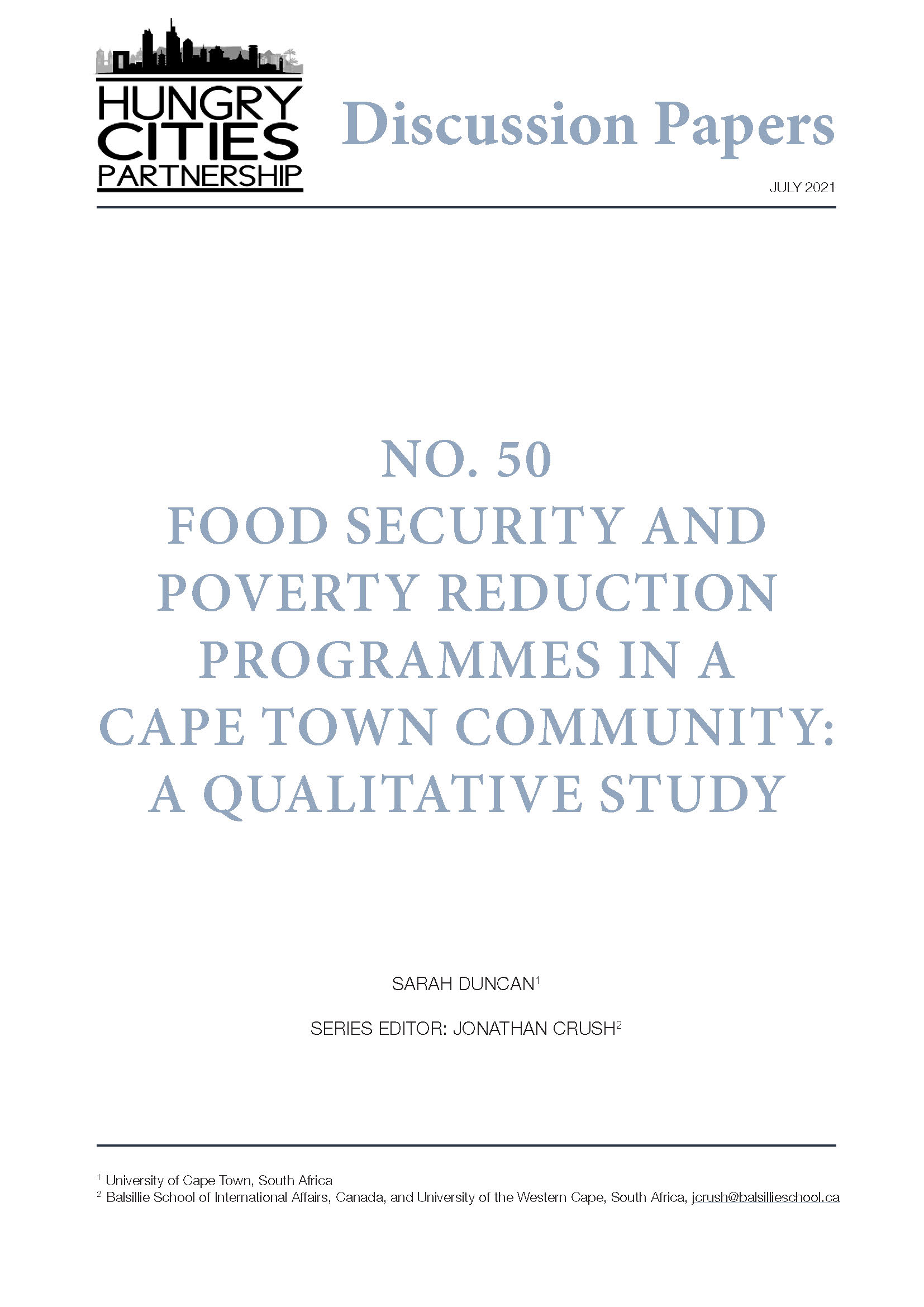Despite increased engagement with public programmes, low-income urban South African communities continue to experience high levels of food insecurity. More needs to be known about why progress in poverty alleviation and food security has plateaued (Shisana et al 2013). This discussion paper is based on a qualitative study that investigated how food insecure female-headed households in a Cape Town community made use of state (national) and local (government, NGO and community-led) poverty reduction programmes and social networks in their pursuit of food security (Duncan 2016). It revealed the study participants as skilled survivors who carefully navigated their environment, using both formal and informal strategies, to keep their households from collapse. In the midst of multi-dimensional poverty, the women engaged the complexities of food insecurity by using internal (personal) and external (structural, environmental) drivers for survival. They experienced the contributions of poverty reduction programmes to household food security as “half a help” given that these programmes only helped them to sustain rather than uplift them from their circumstances. To better address food insecurity, state and local poverty reduction programmes should improve their collaboration with each other, the communities that they serve (their aspirations, functioning and capabilities), and their understanding of existing local survival means including how households view and experience the causal factors of food insecurity and cope with the multi-dimensional nature of poverty.

